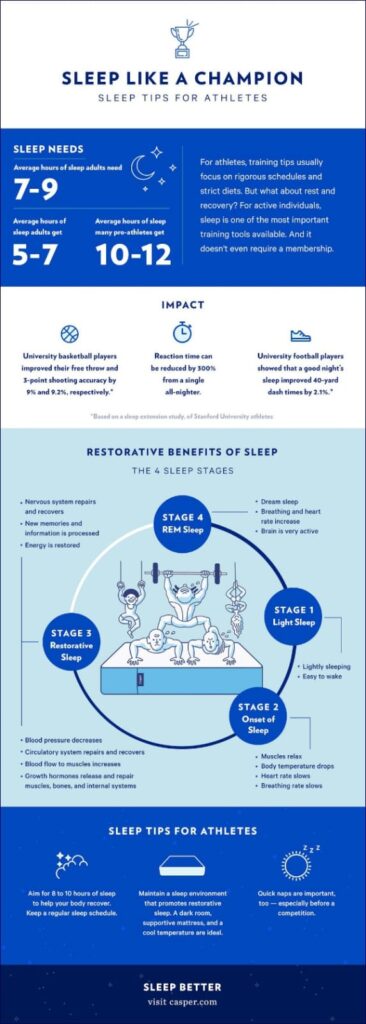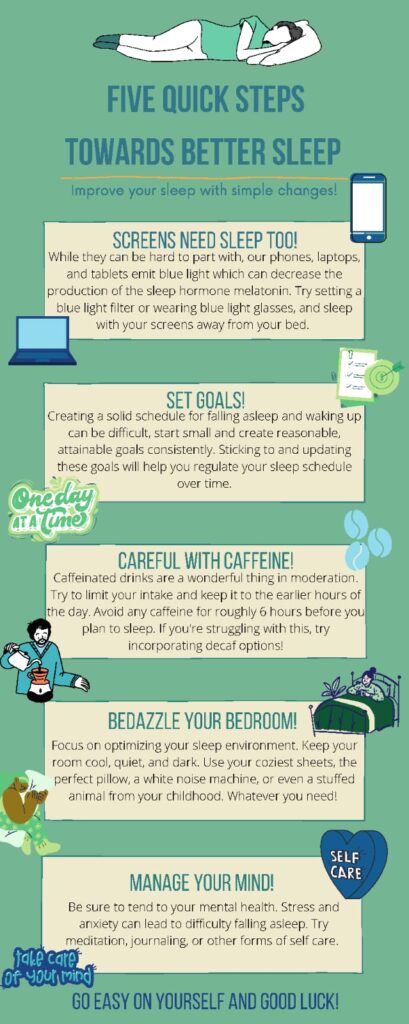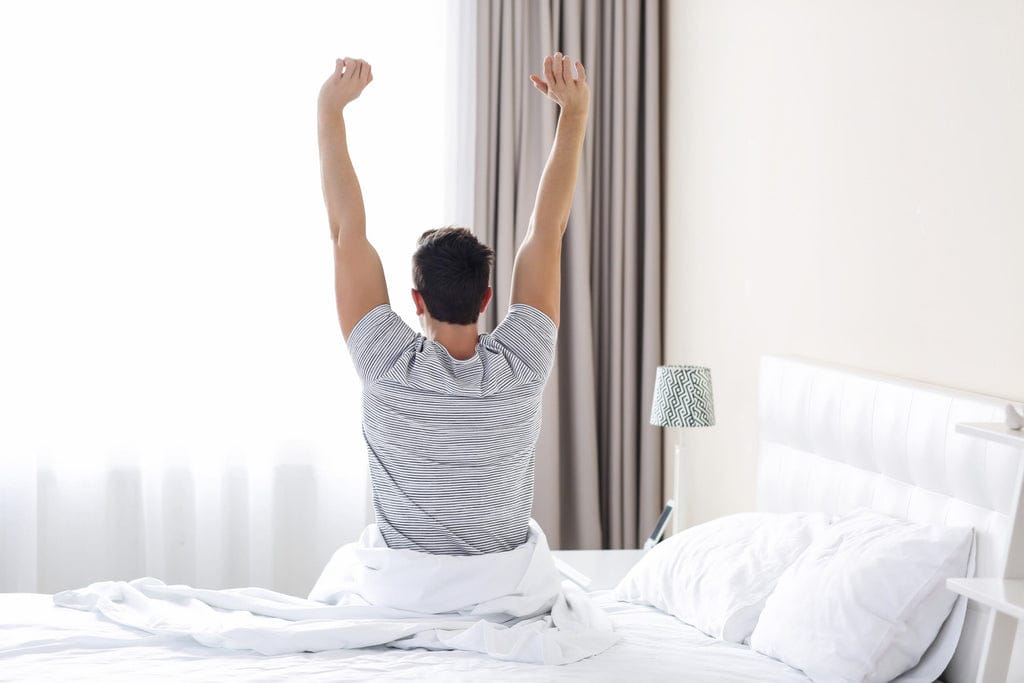Unlock the Power of Sleep for Peak Performance
Did you know that nearly one-third of adults don’t get enough sleep, and poor sleep quality can drastically reduce your cognitive and physical performance? Sleep deprivation is linked to impaired memory, reduced concentration, and slower reaction times, which can affect everything from work productivity to athletic achievements.
The brain plays a central role in managing sleep, and learning how to “train your brain” to fall asleep faster and stay asleep longer can transform your life. Unlike relying on sleep aids or temporary fixes, training your brain involves adopting mental habits and routines that encourage natural, restorative sleep.
In this article, we will explore how sleep works, why the brain is key to training yourself to sleep like a champion, and practical techniques you can start using today. Whether you struggle with falling asleep or simply want to optimize your rest, these strategies will help you harness the power of your brain for deeper, more refreshing sleep every night.
Understanding Sleep and the Brain: The Science Behind Restorative Sleep
Sleep is not just a passive state of rest; it is a complex and active process involving several distinct stages that cycle throughout the night. These include REM (Rapid Eye Movement) sleep and various stages of non-REM sleep, each playing a unique role in brain health and body restoration.
At the core of sleep regulation lies the brain’s internal clock, known as the circadian rhythm, which controls the timing of sleepiness and wakefulness over a roughly 24-hour cycle. This rhythm is influenced by environmental cues like light and darkness, helping the brain decide when to release sleep-promoting hormones such as melatonin.
When this intricate system is disrupted—by irregular schedules, stress, or lifestyle factors—sleep quality deteriorates. Poor sleep can impair cognitive functions such as attention, decision-making, and problem-solving, weaken emotional regulation, and increase the risk of chronic diseases like diabetes and heart problems.
Why “Training” Your Brain Matters: Harnessing Neuroplasticity for Better Sleep
The idea of “training” your brain to sleep better is rooted in the brain’s remarkable ability to adapt and change, a phenomenon known as neuroplasticity. This means that with consistent practice and the right mental habits, your brain can learn to develop new pathways that promote healthier sleep patterns over time.
By consciously changing these patterns through mental conditioning, you help your brain recognize bedtime as a safe, restful, and restorative time. This mental training goes beyond traditional sleep hygiene (like limiting caffeine or creating a dark room) by focusing on how you mentally prepare for sleep.
Techniques such as cognitive behavioral therapy for insomnia (CBT-I) specifically target these thought patterns, helping retrain the brain to reduce sleep anxiety and improve sleep onset. In essence, training your brain means harnessing its natural flexibility to create positive, lasting changes that enable you to sleep like a champion—night after night.
Techniques to Train Your Brain for Better Sleep: Practical Strategies for Restful Nights
Training your brain to sleep better involves a combination of mental habits and lifestyle adjustments that work together to calm your mind and reinforce healthy sleep patterns. Here are several proven techniques to help you harness the power of your brain and achieve champion-level sleep.
Establish a Consistent Sleep Schedule
One of the most effective ways to train your brain is by sticking to a regular sleep and wake time every day, even on weekends. This consistency helps regulate your brain’s internal clock or circadian rhythm, making it easier to fall asleep naturally and wake up feeling refreshed.
Mindfulness and Relaxation Techniques
Practices such as mindfulness meditation, deep breathing, and progressive muscle relaxation activate the parasympathetic nervous system, which calms your body and quiets the mind. These techniques lower stress hormones like cortisol, helping your brain transition from wakefulness to sleep readiness.
Cognitive Behavioral Therapy for Insomnia (CBT-I) Principles
Techniques such as sleep restriction limit time in bed to increase sleep efficiency, while stimulus control therapy trains your brain to associate the bedroom strictly with sleep, reducing wakefulness during the night. CBT-I helps reframe anxiety about sleep into positive expectations, breaking the vicious cycle of insomnia.
Limit Stimulants and Screen Time Before Bed
Exposure to blue light from phones, tablets, and computers suppresses melatonin production, the hormone your brain releases to initiate sleep. Avoiding screens at least an hour before bedtime helps your brain wind down naturally.

This infographic emphasizes the importance of sleep for athletes, noting that most pro-athletes need 10–12 hours for optimal recovery and performance. It highlights benefits such as improved accuracy, faster reaction times, and enhanced physical performance through adequate rest.
Additionally, cutting back on caffeine and other stimulants in the afternoon and evening reduces brain alertness, making it easier to relax.
Create a Sleep-Inducing Environment
Your brain associates certain environmental cues with sleep. A cool, dark, and quiet bedroom signals to your brain that it’s time to rest. Using blackout curtains, earplugs, or white noise machines can help eliminate disruptions.
Keeping your bedroom reserved for sleep (not work or entertainment) reinforces this association, training your brain to switch into sleep mode the moment you enter the space.
The Role of Daytime Habits in Brain Training: Setting the Foundation for Quality Sleep
Training your brain to sleep like a champion doesn’t start only at bedtime—it begins with the habits you cultivate throughout the day. Daytime behaviors greatly influence your brain’s ability to regulate sleep and maintain healthy circadian rhythms.
Exercise and Its Impact on Sleep Quality
Regular physical activity is one of the most effective natural sleep aids. Engaging in moderate aerobic exercise during the day helps your brain regulate sleep by reducing anxiety and promoting deeper stages of sleep.
However, exercising too close to bedtime can sometimes increase alertness, so it’s best to finish workouts at least a few hours before hitting the sack.
Diet and Timing of Meals
What and when you eat affects your brain’s readiness for sleep. Heavy or spicy meals late at night can cause discomfort and disrupt your sleep cycle. Consuming foods rich in sleep-supporting nutrients like magnesium and tryptophan during the day can support brain function and relaxation.
Exposure to Natural Light
Natural sunlight exposure, especially in the morning, plays a critical role in regulating your brain’s internal clock. Sunlight helps suppress melatonin during the day, boosting alertness, and signals the brain to release melatonin at night.
Spending time outdoors or near bright windows helps maintain a healthy circadian rhythm, making it easier to fall asleep when the sun goes down. By optimizing these daytime habits, you prepare your brain to follow a natural, consistent rhythm that supports restful and rejuvenating sleep every night.
Common Pitfalls and How to Avoid Them: Staying on Track with Brain Training
Even with the best intentions, many people encounter obstacles when trying to train their brain for better sleep. Understanding these common pitfalls—and knowing how to overcome them—can make the difference between temporary improvements and lasting sleep success.
Inconsistency in Sleep Routines
One of the most frequent mistakes is having an irregular sleep schedule. Staying up late on weekends or frequently changing your bedtime disrupts your brain’s circadian rhythm, making it harder to fall asleep consistently.
To avoid this, aim to go to bed and wake up at the same time every day, even on weekends, to help your brain internalize a predictable sleep-wake cycle.
Overreliance on Sleep Aids
While occasional use of sleep medications or melatonin supplements can be helpful, relying on them regularly can hinder your brain’s natural ability to regulate sleep. These aids often treat the symptoms rather than the root causes of insomnia. Instead, focus on behavioral and cognitive strategies that empower your brain to initiate sleep on its own.
Using Technology Right Before Bed
Late-night screen time is a common culprit behind sleep troubles. The blue light emitted from devices like smartphones and laptops suppresses melatonin production, delaying sleep onset. Studies show that exposure to blue light before bedtime can confuse your brain into thinking it’s still daytime.
Trying Too Hard to Sleep
Paradoxically, stressing about sleep can make it even more elusive. When people put pressure on themselves to fall asleep, they trigger a stress response that increases cortisol levels, keeping the brain alert. This cycle of performance anxiety around sleep is common among insomniacs.

This visual offers simple, actionable tips for improving sleep, like limiting screen time, setting sleep goals, and moderating caffeine intake. It promotes small, consistent changes for long-term sleep health improvement.
The key is to adopt a non-striving mindset where sleep is approached with acceptance and relaxation rather than urgency.
Ignoring Underlying Conditions
Sometimes, poor sleep is a symptom of deeper issues such as sleep apnea, anxiety disorders, or depression. If lifestyle adjustments and brain training techniques don’t yield results, it’s important to seek medical guidance. Identifying and treating these underlying conditions can significantly improve sleep quality and overall mental health.
By being aware of these pitfalls and taking proactive steps to avoid them, you can maintain momentum in training your brain and continue building habits that lead to lasting, high-quality sleep.
Embrace the Journey to Champion-Level Sleep
Training your brain to sleep better isn’t just a trendy concept—it’s a science-backed, life-changing practice that taps into the power of your brain’s adaptability. By making intentional changes to your thoughts, routines, and daily habits, you can cultivate a healthier relationship with sleep and enjoy the profound benefits that come with it.
The journey begins with understanding the importance of sleep for overall health and recognizing that quality rest is not a luxury—it’s essential. From enhancing memory and cognitive function to supporting emotional resilience and immune strength, good sleep sets the stage for your brain and body to perform at their best.
You’ve learned that consistent routines, mindfulness techniques, and cognitive behavioral strategies like CBT-I can help retrain your brain to welcome sleep instead of resisting it.
Alongside these, your daytime habits—from exercise and sunlight exposure to diet and screen time—create the foundation your brain needs to follow a stable and healthy sleep rhythm.
It’s equally crucial to be mindful of the common pitfalls: inconsistency, stress about sleep, and reliance on short-term solutions. Avoiding these traps ensures that your progress is sustainable and long-lasting. And if challenges persist, don’t hesitate to seek professional help, as there may be underlying issues needing attention.
Frequently Asked Questions (FAQs) About Training Your Brain for Better Sleep
What does it mean to train your brain to sleep?
Training your brain to sleep involves developing consistent habits and mental cues that signal to your brain it’s time to rest. This includes regulating your circadian rhythm, adopting a calming bedtime routine, and using cognitive techniques to reduce anxiety and overthinking.
How long does it take to improve sleep through brain training?
With consistent effort, many people notice improvements in their sleep within 2 to 4 weeks. However, it can vary based on individual sleep issues and adherence to healthy habits.
Can brain training help with insomnia?
Yes, brain training techniques such as cognitive behavioral therapy for insomnia (CBT-I), mindfulness, and sleep restriction therapy are proven to be effective for managing and even resolving insomnia.
Is it necessary to go to bed at the same time every night?
Maintaining a consistent bedtime helps regulate your body’s internal clock, making it easier for your brain to initiate and maintain sleep naturally.
Does meditation really help you sleep better?
Yes, meditation—especially mindfulness and body scan techniques—can calm the mind, lower cortisol levels, and improve sleep quality by reducing stress and mental clutter.
What is CBT-I and how does it work?
Cognitive Behavioral Therapy for Insomnia (CBT-I) is a structured, evidence-based program that helps you change negative thoughts and behaviors that interfere with sleep. It addresses the root causes rather than just symptoms.
Should I avoid screens before bed?
Yes, the blue light emitted from phones, laptops, and TVs can suppress melatonin production and trick your brain into thinking it’s still daytime. Aim to turn off screens at least an hour before sleep.
Does exercise affect sleep quality?
Absolutely. Moderate physical activity, especially earlier in the day, can help you fall asleep faster and enjoy deeper sleep. However, avoid vigorous exercise right before bedtime.
Can diet impact my sleep?
Yes. Consuming large meals, caffeine, or sugary snacks close to bedtime can disrupt sleep. Opt for balanced meals during the day and a light snack in the evening if needed.
What’s the best time to wake up for good sleep hygiene?
The best time is one that aligns with your circadian rhythm and allows for 7–9 hours of sleep. Waking up at the same time every day—even on weekends—helps stabilize your sleep cycle.
Is napping good or bad for brain training?
Short naps (10–20 minutes) can boost alertness and mood. However, long or late naps may interfere with nighttime sleep and should be avoided if you struggle with insomnia.
Why do I wake up in the middle of the night?
Waking during the night can be caused by stress, environmental disturbances, caffeine, alcohol, or underlying medical conditions. Brain training techniques like relaxation and sleep restriction therapy can help address this.
Can overthinking at night be managed through brain training?
Yes. Techniques like journaling before bed, mindfulness meditation, and cognitive restructuring can help quiet overactive thoughts and promote restful sleep.
Is melatonin safe for long-term use?
Melatonin is generally safe for short-term use, but long-term dependence is not recommended. It’s better to support natural melatonin production through healthy habits like light exposure and consistent routines.
Can sleep be improved without medication?
Yes. Many people experience lasting improvements through non-pharmacological approaches like CBT-I, meditation, breathwork, and lifestyle changes.
How does sunlight exposure help with sleep?
Natural light exposure in the morning helps regulate your circadian rhythm by signaling your brain to reduce melatonin production during the day and increase it at night.
What role does mindset play in sleep quality?
A relaxed, accepting mindset helps reduce anxiety and over-effort associated with sleep problems. Letting go of the pressure to sleep often makes it easier to fall asleep naturally.
Are sleep trackers useful for brain training?
Sleep trackers can offer insights into patterns and duration, but they shouldn’t replace how you feel. Use them as tools, not as sources of anxiety.
Can therapy or counseling help with sleep issues?
Yes, therapy—especially CBT-I—can be very effective for identifying and resolving underlying mental health issues that affect sleep.
Is it okay to sleep in on weekends to catch up on rest?
Occasionally, yes, but consistently sleeping in on weekends can confuse your brain and disrupt your sleep-wake rhythm. It’s better to maintain a steady sleep schedule.
“Sleep is not a passive state—it’s an active investment in your brain’s ability to think, feel, and perform at its best.”
– Authored by Mridu Mishra





